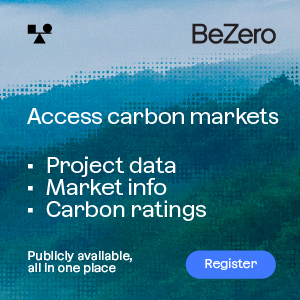A coalition of green-minded businesses and investors on Tuesday set out text proposals they want to see in December’s UN climate agreement, wording they said would drive bold climate action that included a call for “meaningful” carbon pricing.
The We Mean Business coalition and the Institutional Investors Group on Climate Change (IIGCC) set out their proposals on Tuesday, aiming to influence government negotiators shaping the UN text.
The proposals included full preferred and fall-back wording for several elements of the Paris deal, including agreeing to strengthen national emission reduction commitments every five years, starting in 2020, and setting a work programme to agree on accounting rules for international transfers of emission reduction efforts by the end of 2016.
“Businesses are already coming together to find innovative ways not only to reduce carbon emissions but also to create new jobs and secure sustainable economic growth at the same time. But to go further, business needs the right government policies in place. We Mean Business has today revealed how we can hard-wire those sorely needed policies into the new climate change agreement,” said Mark Kenber, CEO of non-profit The Climate Group, part of We Mean Business.
The eight proposals are:
1. Net zero greenhouse gas emissions well before the end of the century
This would provide the policy certainty and clarity needed to drive low carbon and climate resilient investment in the real economy. By providing long-term details in national decarbonisation strategies to 2050, governments will increase business confidence in making multi-decadal low carbon capital investments.
2. Strengthen commitments every 5 years
Strengthening their commitments every 5 years, starting in 2020, governments will keep pace with private sector innovation, stimulate increased private sector ambition, and progressively realize the transformation of the global economy.
3. Enact meaningful carbon pricing
With the majority of INDCs either putting or considering a price on carbon, whether through carbon taxes or markets, the Paris Agreement should recognize their efforts and the merits of these approaches to driving emissions reductions. To be effective, carbon pricing needs to be adopted globally, to reach high enough levels to change investment decisions and behaviour towards lower carbon ones and to converge to avoid trade friction.
Preferred Text
Preamble
“Emphasizing that many Parties have already put a price on carbon, and that where the price is sufficient to drive lower carbon investment and behavior, this is an important, efficient, and cost-effective approach to achieving deep cuts in global greenhouse gas emissions.”
Article 3 (Mitigation)
“The CMA shall further facilitate international cooperation between Parties in the implementation of mitigation activities.”
“Parties shall ensure the environmental integrity of internationally transferred mitigation outcomes used towards the fulfillment of its nationally determined mitigation commitments. Internationally transferred mitigation outcomes must avoid double-counting and be real, permanent, additional and verified.”
COP decision
“Invites all Parties to consider further international cooperation in the implementation of nationally determined mitigation commitments.”
“Requests that the IPC commence a work programme to develop standardized accounting rules which ensure the environmental integrity of internationally transferred mitigation outcomes, with a view to the IPC making recommendations to the CMA at its first session.”
“Decides that the CMA shall, at its first session, adopt standardized accounting rules which ensure the environmental integrity of internationally transferred mitigation outcomes.”
4. New and additional climate finance at scale
The Paris Agreement will need to improve the predictability of financial flows, improve domestic enabling environments to facilitate climate investment, and direct international support towards low emission and climate resilient investment.
5. Transparency and accountability to promote a race to the top
A strong transparency system under the Paris Agreement will reassure businesses and investors that all governments will be accountable for their commitments.
6. National commitments at the highest end of ambition
An agreement with the broadest possible participation will address business concerns around maintaining competitiveness on a fair playing field.
7. Adaptation to build climate resilient economies and communities
By treating adaptation with the same political parity as mitigation, including with a long-term global vision on adaptation, the Paris Agreement will signal that all actors must build climate resilience while they reduce emissions.
8. Pre-2020 ambition through Workstream 2
In the years 2016 to 2020, Workstream 2 under the Durban Platform can raise pre-2020 ambition by exploring and scaling up technical solutions to reduce emissions and build climate resilience.
By Ben Garside – ben@carbon-pulse.com



